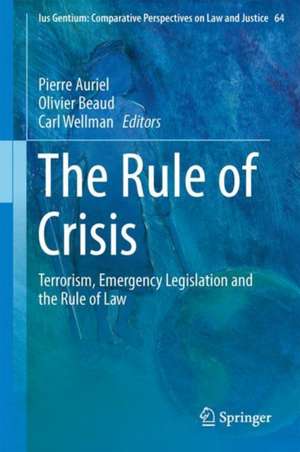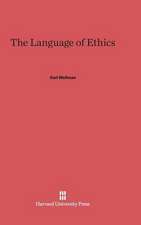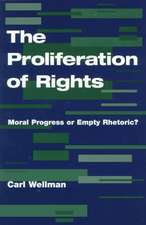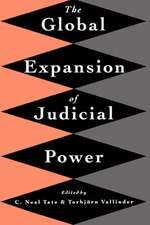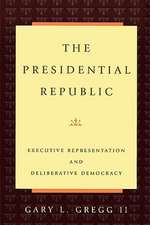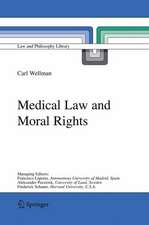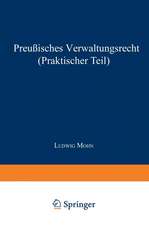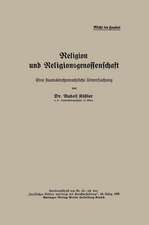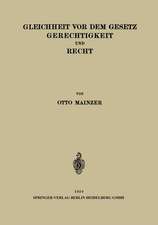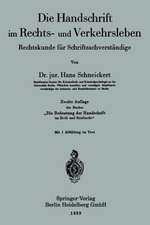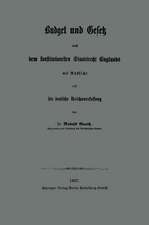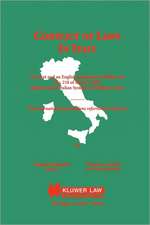The Rule of Crisis: Terrorism, Emergency Legislation and the Rule of Law: Ius Gentium: Comparative Perspectives on Law and Justice, cartea 64
Editat de Pierre Auriel, Olivier Beaud, Carl Wellmanen Limba Engleză Hardback – 27 mar 2018
The goal is not to offer judgment on one response or the other. Rather, the contributors offer a comprehensive and thoughtful examination of the entire concept. In the process, they draw attention to the inadaptability of traditional legal and philosophical categories in a new and changing political world.
The contributors first criticize the idea of these legislations. They then go on to develop different models to respond to these crises. They build a general analytical framework by answering such questions as: What is an emergency legislation? What kinds of emergencies justify laws of this nature? Why is contemporary terrorism such a specific emergency justifying new laws?
Using legal and philosophical reflections, this study looks at how we are changing society. Coverage also provides historical experiences of emergency legislations to further illustrate this point. In the end, readers will gain insight into the long-term consequences of these legislations and how they modify the very work of the rule of law.
| Toate formatele și edițiile | Preț | Express |
|---|---|---|
| Paperback (1) | 638.57 lei 6-8 săpt. | |
| Springer International Publishing – 5 ian 2019 | 638.57 lei 6-8 săpt. | |
| Hardback (1) | 894.34 lei 6-8 săpt. | |
| Springer International Publishing – 27 mar 2018 | 894.34 lei 6-8 săpt. |
Din seria Ius Gentium: Comparative Perspectives on Law and Justice
- 20%
 Preț: 1128.14 lei
Preț: 1128.14 lei - 20%
 Preț: 1565.15 lei
Preț: 1565.15 lei - 18%
 Preț: 1115.28 lei
Preț: 1115.28 lei - 18%
 Preț: 904.28 lei
Preț: 904.28 lei - 18%
 Preț: 1001.81 lei
Preț: 1001.81 lei -
 Preț: 180.18 lei
Preț: 180.18 lei - 24%
 Preț: 787.30 lei
Preț: 787.30 lei - 18%
 Preț: 1115.28 lei
Preț: 1115.28 lei - 15%
 Preț: 635.31 lei
Preț: 635.31 lei - 18%
 Preț: 1108.67 lei
Preț: 1108.67 lei - 18%
 Preț: 1007.97 lei
Preț: 1007.97 lei - 18%
 Preț: 784.79 lei
Preț: 784.79 lei - 18%
 Preț: 1223.11 lei
Preț: 1223.11 lei - 18%
 Preț: 891.02 lei
Preț: 891.02 lei - 18%
 Preț: 1009.40 lei
Preț: 1009.40 lei - 18%
 Preț: 1005.74 lei
Preț: 1005.74 lei - 18%
 Preț: 1014.89 lei
Preț: 1014.89 lei - 18%
 Preț: 896.70 lei
Preț: 896.70 lei - 15%
 Preț: 641.85 lei
Preț: 641.85 lei - 18%
 Preț: 779.71 lei
Preț: 779.71 lei - 18%
 Preț: 1010.79 lei
Preț: 1010.79 lei - 18%
 Preț: 1010.03 lei
Preț: 1010.03 lei - 18%
 Preț: 950.52 lei
Preț: 950.52 lei - 15%
 Preț: 638.76 lei
Preț: 638.76 lei - 18%
 Preț: 947.50 lei
Preț: 947.50 lei - 20%
 Preț: 564.76 lei
Preț: 564.76 lei - 18%
 Preț: 1115.14 lei
Preț: 1115.14 lei - 18%
 Preț: 944.82 lei
Preț: 944.82 lei - 15%
 Preț: 635.80 lei
Preț: 635.80 lei - 15%
 Preț: 637.59 lei
Preț: 637.59 lei - 15%
 Preț: 643.65 lei
Preț: 643.65 lei - 24%
 Preț: 809.15 lei
Preț: 809.15 lei
Preț: 894.34 lei
Preț vechi: 1090.66 lei
-18% Nou
Puncte Express: 1342
Preț estimativ în valută:
171.14€ • 179.50$ • 142.46£
171.14€ • 179.50$ • 142.46£
Carte tipărită la comandă
Livrare economică 02-16 aprilie
Preluare comenzi: 021 569.72.76
Specificații
ISBN-13: 9783319744728
ISBN-10: 3319744720
Pagini: 275
Ilustrații: VIII, 251 p.
Dimensiuni: 155 x 235 mm
Greutate: 0.54 kg
Ediția:1st ed. 2018
Editura: Springer International Publishing
Colecția Springer
Seria Ius Gentium: Comparative Perspectives on Law and Justice
Locul publicării:Cham, Switzerland
ISBN-10: 3319744720
Pagini: 275
Ilustrații: VIII, 251 p.
Dimensiuni: 155 x 235 mm
Greutate: 0.54 kg
Ediția:1st ed. 2018
Editura: Springer International Publishing
Colecția Springer
Seria Ius Gentium: Comparative Perspectives on Law and Justice
Locul publicării:Cham, Switzerland
Cuprins
Chapter 1. Introduction.- Chapter 2. Conceptual Analysis and Emergency Legislation.- Part I: Concepts and Justification of Emergency Legislations.- Chapter 3. Emergencies in Sober Hobbesianism.- Chapter 4. The State of Exception and the Terrorist Threat – An Obsolete Combination.- Chapter 5. The Continued Exceptionalism of the American Response to Daesh.- Chapter 6. Dignity, Emergency, Exception.- Part II: Risk and Failure of Emergency Legislations.- Chapter 7. Reconciling International Human Rights Law with Executive Non-Trial-Based Counter-Terror Measures: The Case of UK Temporary Exclusion Orders.- Chapter 8. Polish Martial Law on the Docket – Judging the Past and the Clash of Judicial Narratives.- Chapter 9. Emergency as a State of Mind – The Case of Israel.- Chapter 10. The French Case or the Hidden Dangers of a Long Term State of Emergency.- Chapter 11. Anything Goes: How does French Law Deal with the State of Emergency (1955–2015)?.- Chapter 12. The German Reticence vis-à-vis the State of Emergency.
Notă biografică
Pierre Auriel has been a Ph.D candidate at the University Paris-II Panthéon-Assas since 2014. He is a member of the Michel Villey Institute for legal culture and philosophy of law and the European Law Centre. He won the Guy Carcassonne Prize for the best article on constitutional law (2015). His work mainly focuses on constitutional theory, European law, and the theory of fundamental rights.
Olivier Beaud was a professor of public law (State Professorship) at the University of Lille from 1990 to 1998. He was then elected to the University of Paris-II Panthéon-Assas (2008–). He has twice been a member of the University Institute of France, as a junior (1993–1998) and as a senior (2012–2017). He work currently focuses on constitutional law, constitutional theory, and legal theory, particularly comparisons between the French and German legal doctrines.
Carl Wellman is an Emeritus Hortense and Tobias Lewin Distinguished Professor in the humanities at Washington University in Saint Louis. He was born in 1926, graduated from the University of Arizona in 1949, and received his doctorate from the Harvard University in 1954. He taught at the Lawrence College from 1953 until 1968 and then at Washington University from 1968 until 1999. His major publications are Welfare Rights, 1982; A Theory of Rights, Persons Under Laws, Institutions, and Morals, 1985; Real Rights, 1995; An Approach to Rights, 1997; The Proliferation of Rights, Moral Progress or Empty Rhetoric, 1999; Medical Law and Moral Rights, 2009; The Moral Dimensions of Human Rights, 2011, and Terrorism and Counterterrorism – A Moral Assessment, 2013; Constitutional Rights: What They Are and What They Ought to Be, 2016.
Textul de pe ultima copertă
This book analyzes emergency legislations formed in response to terrorism. In recognition that different countries, with different legal traditions, have different solutions, it adopts a comparative point of view. The countries profiled include America, France, Israel, Poland, Germany and United Kingdom.
The goal is not to offer judgment on one response or the other. Rather, the contributors offer a comprehensive and thoughtful examination of the entire concept. In the process, they draw attention to the inadaptability of traditional legal and philosophical categories in a new and changing political world.
The contributors first criticize the idea of these legislations. They then go on to develop different models to respond to these crises. They build a general analytical framework by answering such questions as: What is an emergency legislation? What kinds of emergencies justify laws of this nature? Why is contemporary terrorism such a specific emergency justifying new laws?
Using legal and philosophical reflections, this study looks at how we are changing society. Coverage also provides historical experiences of emergency legislations to further illustrate this point. In the end, readers will gain insight into the long-term consequences of these legislations and how they modify the very work of the rule of law.
The goal is not to offer judgment on one response or the other. Rather, the contributors offer a comprehensive and thoughtful examination of the entire concept. In the process, they draw attention to the inadaptability of traditional legal and philosophical categories in a new and changing political world.
The contributors first criticize the idea of these legislations. They then go on to develop different models to respond to these crises. They build a general analytical framework by answering such questions as: What is an emergency legislation? What kinds of emergencies justify laws of this nature? Why is contemporary terrorism such a specific emergency justifying new laws?
Using legal and philosophical reflections, this study looks at how we are changing society. Coverage also provides historical experiences of emergency legislations to further illustrate this point. In the end, readers will gain insight into the long-term consequences of these legislations and how they modify the very work of the rule of law.
Caracteristici
Offers a groundbreaking analysis of emergency legislations Features the work of leading scholars on emergency legislations Provides a comprehensive and comparative approach
